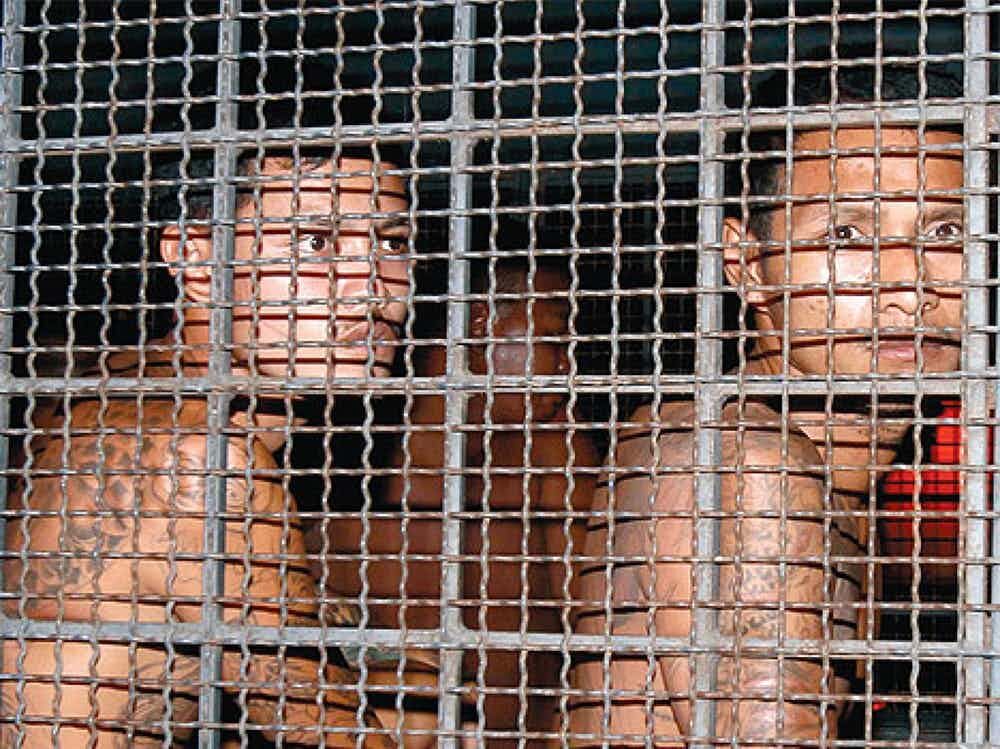Dept of Corrections denies existence of ‘VIP rooms’ in Thai prisons

Contrary to allegations in the media that inmates in Thai prisons can buy their way into an air-conditioned, smoking room with unlimited TV, the Department of Corrections says there is no such thing as a VIP room when you’re behind bars in Thailand.
On Tuesday, Deputy Director-General of the Department of Corrections Sitthi Suteewong said he would like to clarify several points about inmate life in Thailand…
1. Smoking
Sitthi says there is no smoking whatsoever in any of Thailand’s prisons. Before 2018, inmates were allowed to smoke cigarettes outside at specified times. In 2019, the Ministry of Public Health declared prisons “smoke-free zones,” prohibited the sale of tobacco in prisons, and completely banned smoking on prison grounds.
Anyone found smuggling tobacco into a prison is subject to disciplinary action, said Sitthi.
2. Air-conditioning
No cells in Thai prisons are fitted with air-conditioning. All cells, in prisons across the country, are cooled by a fan only.
3. TV
Inmates are permitted to watch television at specified times because television can improve knowledge, and relieve stress. Buddhist chanting is also shown on TV for prisoners. However, no inmates are permitted to turn on the TV and choose whatever programme they like.
Sitthi said that the Department of Corrections takes care of inmates according to their fundamental rights, based on prison operating standards within the legal framework and in consideration of humanitarian principles.
But the Thailand Annual Prison Report 2023 released today, March 9, paints a different picture.
The 65-page report, conducted by the International Federation for Human Rights (FIDH), describes prison conditions in Thailand from January 1, 2022 – December 31, 2022.
Secretary-General of FIDH, Adilur Rahman Khan, said…
“Former prisoners described the inhuman and degrading treatment to which no inmate should be subjected. While authorities have taken some positive steps to address some blatantly abusive situations, the overall picture of prison conditions remains bleak. The Thai government must increase its efforts to make prison conditions consistent with international standards and the country’s human rights obligations.”
According to the report, prisoners in Thailand face ongoing challenges including crowded and inadequate accommodation, inhuman or degrading treatment and punishments, unsanitary conditions, extremely poor quality of food and drinking water, inadequate access to healthcare, exploitative work, limited contact with the outside world, lack of recreational and rehabilitative activities and ineffective complaints procedures.
One positive note was that the Department of Corrections pledged to stop using prison labour to produce fishing nets.
Overall, Thailand’s prison population decreased by 6% in 2022 – one contributing factor being the release of 3,000 cannabis convicts upon the decriminalisation of marijuana on June 9, 2022.
Despite the decrease in numbers, overcrowding is still a huge problem with 106 of Thailand’s 143 prisons running above their official capacity.
Nearly 20% of inmates are individuals held in detention awaiting trial and an overwhelming amount of prisoners are put away for drug crimes.
As of December 2022, there were 7,388 foreign nationals in Thai prisons, accounting for 2.8% of the
total prison population. The 10 countries with the highest number of nationals incarcerated were:
Myanmar (46%), Laos (17%), Cambodia (8%), China (2.7%), Nigeria (2.6%), Malaysia (2.1%), Vietnam
(1%), Taiwan (0.7%), India (0.4%), and Pakistan (0.3%).
The most common offences under which foreign nationals were incarcerated included: drug-related
offences (30%), 45 violations of the Immigration Act 1979 (14%), theft (3.2%), offences against life
(2.8%), and violations of the Land Traffic Act 1979 (2.2%).
Latest Thailand News
Follow The Thaiger on Google News:


























